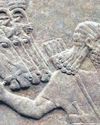
Deep in Indonesian Borneo, workers laid asphalt on a new 60-mile road being built to transport coal from mines that have never been busier.
At one end of the road, crews built a 40-foot-high conveyor belt that whisks the coal over swampland to a new jetty on the Mahakam River.
From there, the coal is funneled onto barges and floated downstream to a private port on the Pacific Ocean. Giant loading machines fill equally massive ships headed for China, India, and the Philippines.
Coal, the world's dirtiest fossil fuel, is booming, and few are profiting more than Low Tuck Kwong, the 76-year-old businessman behind one of Asia's largest coal-mining complexes.
Coal's resurgence as a cheap and reliable energy source propelled him to a spot on Forbes's 100 richest people.
Low's wealth is estimated to have swelled to $28 billion from $1 billion in the years since coal was assumed to be headed for the slag heap.
Some experts had concluded that coal consumption peaked in 2013 at 8 billion metric tons. It has since surpassed that level three years in a row.
Indonesia, the world's largest coal exporter, is shipping more of it than any nation in history.
In December, the International Energy Agency abandoned projections that coal use would drop in coming years, saying that it will increase through at least 2027 to nearly 9 billion tons.
Western nations have turned away from coal, but emerging economies are taking up the slack, as more nations seek to industrialize, modernize, and pull their people out of poverty.
A swath of Asia that spans Vietnam, Indonesia, and the Philippines to India, Bangladesh, and Pakistan—together home to 30% of humanity—has increased the share of its power supply that comes from coal.
By comparison, the U.K., where coal helped fuel the industrial revolution two centuries ago, shut down its last coal-powered plant in September.
Diese Geschichte stammt aus der January 09, 2025-Ausgabe von Mint Mumbai.
Starten Sie Ihre 7-tägige kostenlose Testversion von Magzter GOLD, um auf Tausende kuratierte Premium-Storys sowie über 8.000 Zeitschriften und Zeitungen zuzugreifen.
Bereits Abonnent ? Anmelden
Diese Geschichte stammt aus der January 09, 2025-Ausgabe von Mint Mumbai.
Starten Sie Ihre 7-tägige kostenlose Testversion von Magzter GOLD, um auf Tausende kuratierte Premium-Storys sowie über 8.000 Zeitschriften und Zeitungen zuzugreifen.
Bereits Abonnent? Anmelden

How Bhansali Elevates the First Encounter
An excerpt from a new book on the Hindi director considers the importance of first sightings in Sanjay Leela Bhansali's cinema

From arrack to wine, a bar crawl across Sri Lanka
Cocktail bars in the island nation are drawing on local traditions and flavours to give a heady twist to familiar spirits

The Treasures of Nimrud Pieced Together Again
Archaeologists Have Been Reassembling Bas-Reliefs, Sculptures and Decorated Slabs
Only human-centred AI can charm humans to adopt it
The AI industry could learn from carmakers how to focus on the consumer and modify perceptions

How Emerging Economies Could Prosper in a Protectionist World
As manufacturing export success gets harder, they should focus on service exports. These are unlikely to face big trade barriers

The Asian Dream Is Waking Up To Realities Of Middle-Class Life
Asians are realizing that staying middle-class is not guaranteed
Lessons from the 75-year-old National Sample Survey
Its impressive history tells us much about innovation, autonomy and state-level data collection

Fix India's bond market to lift economic growth
As India's economy slows, we should revive public-private partnerships to attract private investment. But, for debt funding, we'll need to reform and invigorate our market for bonds.
We should let clarity prevail over nonsense: Here's a handy guide
We must use simple language, empathize with people, not take ourselves too seriously and be kind

Clear Goals and Discipline: How Small Investors Can Build Lasting Wealth
There is no one-size-fits-all, the answer will depend on your needs, personal preferences